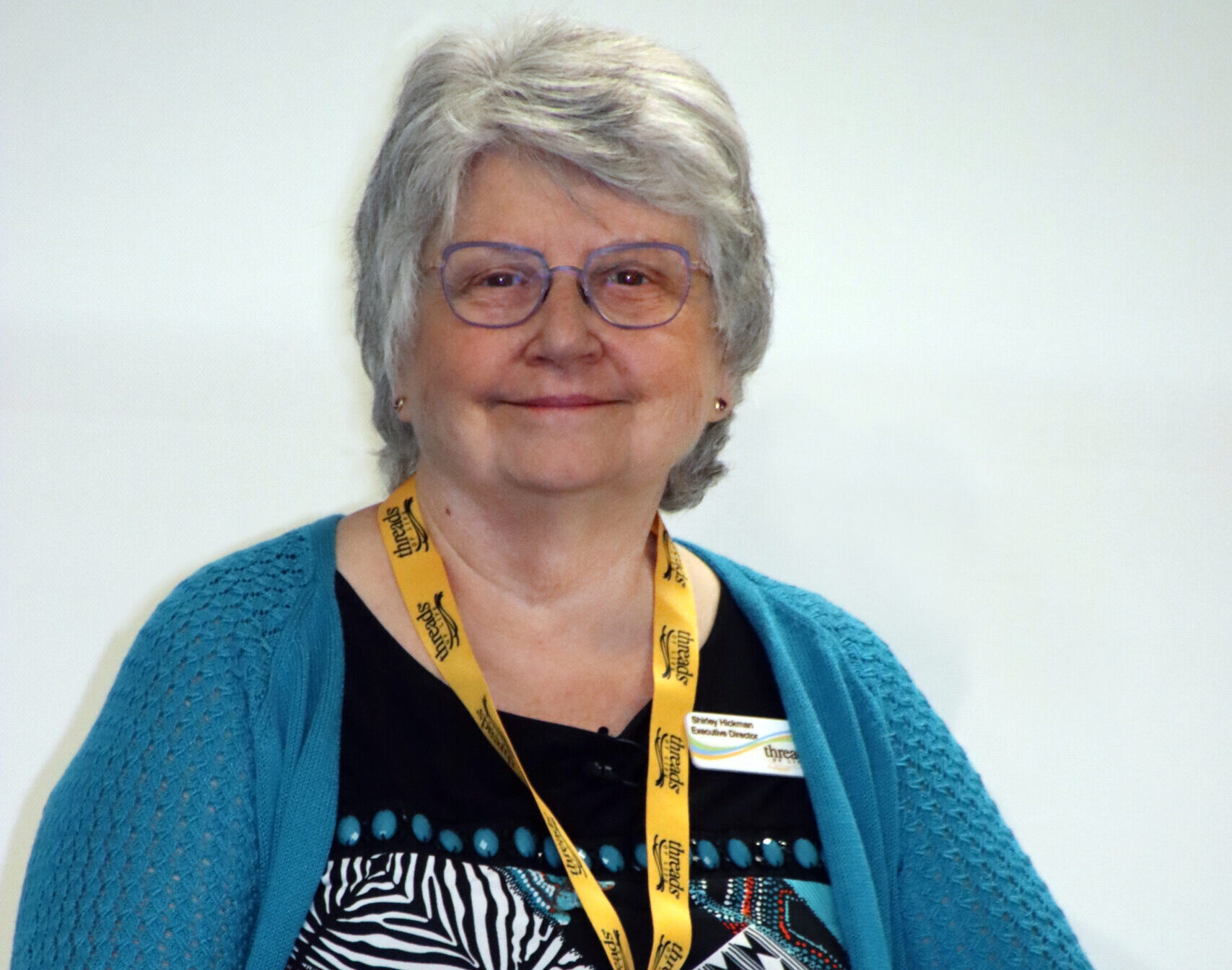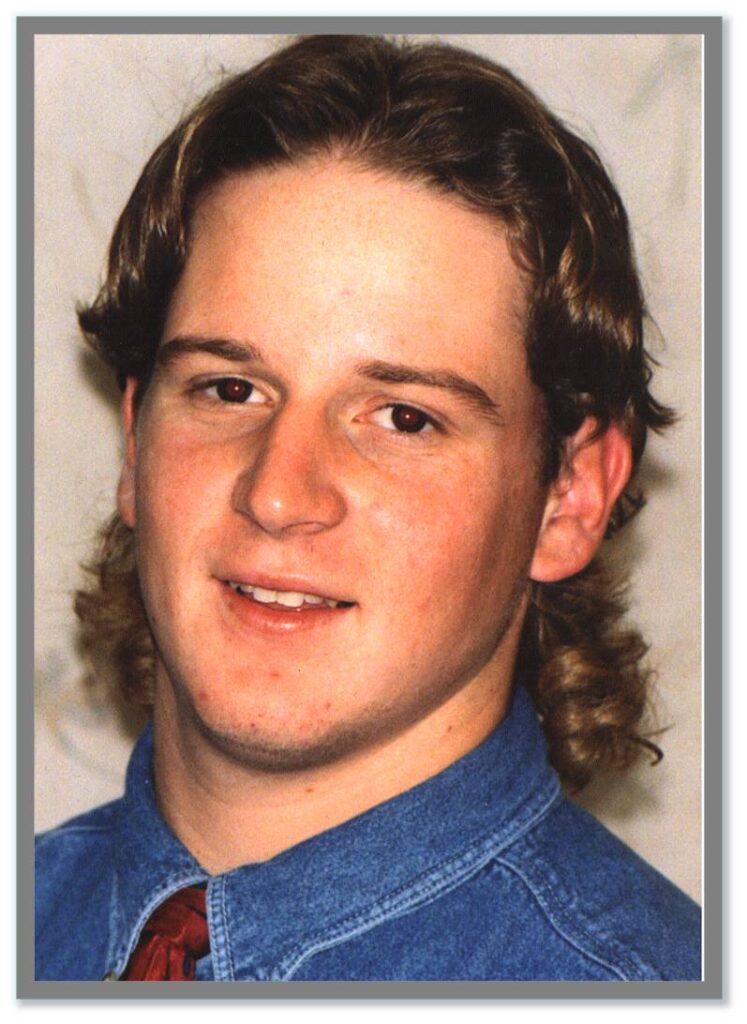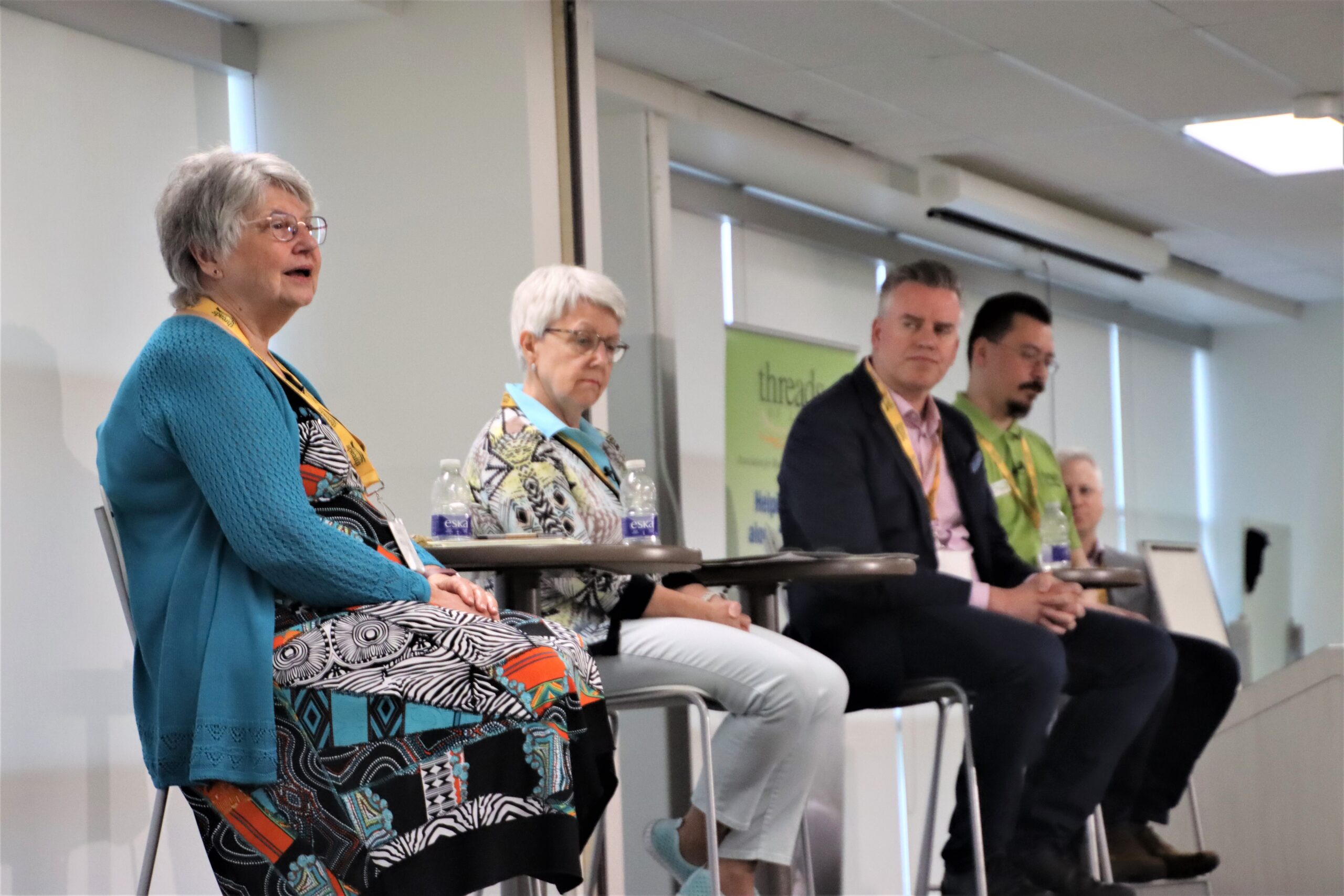
Threads of Life founder Shirley Hickman inducted into OHS Canada Hall of Fame
October 5, 2023
By
Todd Humber

Shirley Hickman, member of the OHS Canada Hall of Fame.
“You’re just lost. You’re a lost person.”
That’s how Shirley Hickman described the weeks and months that followed the death of her son Tim, who was killed on the job in 1996 when there was an explosion at an arena in London, Ont. He was 20.
There were no immediate answers. She was “thrown” into what she called a foreign world with a confusing legal system and investigators who didn’t have any answers and people who didn’t want to speak to her.
The employer wasn’t talking. The Ministry of Labour, at that time, was not communicative with families, leaving them feeling isolated and uninformed.
“If you can’t find out what was the root cause, you don’t know what could have been done to prevent it,” said Hickman.

Tim Hickman
The’ voice of prevention’
Leveraging her experience in volunteer work, she began to identify a need for an organization that would be the “voice of prevention.”
“People started asking me to speak, and it was about, ‘Who is Tim?’ Not so much about what happened, but who is Tim?” she said.
These engagements led her to collaborate with various ministries and organizations focused on health and safety, specifically initiatives to decrease injuries to young workers.
In addition to partnering with government agencies, Hickman said she started to be contacted organically by other grieving families.
“Family members just sort of started finding me by osmosis,” she said. One particularly transformative moment came when an attorney for the Ministry of Labour asked her to speak to another widow. Despite her own unfamiliarity with the legal process, she accepted.
“I thought to myself as one human being to another, ‘How can I not reach out to this widow if she thought I had anything to offer?'” Hickman said she wanted to focus on sharing who the deceased were as individuals, rather than the incidents that led to their deaths.
“We cried together on the phone and we laughed together on the phone,” she said.
Later, a crisis worker from Ontario’s Workplace Safety and Insurance Board (WSIB) called her about a grief-stricken mother who refused to speak to any counsellors. She insisted on talking to someone who had also lost a child. After reaching out to her almost daily, the mother eventually told Hickman: “Thank God for you. I decided that I need to go on living for the sake of my child who has died.”
And her phone kept ringing, and people started finding her. The conversations were as similar as they were heartbreaking — “They wanted people to know who their family member was, and what could be done for prevention.”

Anniversary panel discussion.
Threads of Life
It all crystallized with the foundation of Threads of Life in 2003, which today serves around 3,600 Canadians personally impacted by workplace tragedies. Hickman herself serves as the executive-director.
The organization has become a crucial resource in Canada’s landscape of workplace health and safety, connecting with ministries, labour boards, and companies across various sectors.
Hickman summed up the motivation behind her and many others who have joined Threads of Life, stating, “All family members want is for a similar tragedy to not happen to somebody else. So to create awareness.”
Volunteer Family Guides
Hickman spearheaded a program called Volunteer Family Guides. The guides are family members who have personally experienced life-altering injuries, occupational diseases, or the loss of a loved one due to workplace incidents.
These volunteers undergo rigorous training focused on listening skills and self-care, equipping them to offer empathetic support to others.
“We can’t make someone better. We can’t fix anything for anybody. But we can listen,” she said.
The strength of the program lies in its ability to pair family members who are going through similar experiences. When two fathers, for instance, are connected, or when one sibling speaks to another, they serve as sounding boards for each other, offering a sense of hope and shared understanding, she said.
Initially, families affected by workplace tragedies may receive community support, but that often wanes as legal complexities drag on.
This program bridges the gap, offering individuals a peer to talk to — whether it’s six months or five years down the road — who understands the intricacies and emotional toll of their journey, she said.
These connections validate their experiences and offer coping strategies for special anniversaries and holidays. According to Hickman, the most vital skill the program instills is the ability to listen; it may not change the circumstances, but it can change how one copes with them.
Looking ahead
Hickman can never look at the world of workplace safety through numbers.
“I don’t deal with statistics,” she said. “I think in terms of one, and one is too many. I don’t want one family to be suffering from a workplace injury, illness or death. I can’t think in terms of statistics the way so many organizations do.”
But she is heartened at some of the progress she has seen since 1996, particularly the better communication with families and workers’ compensation boards.
“They weren’t encouraged, weren’t allowed almost, to share with families,” said Hickman.
She also pointed out that public awareness campaigns have been ramped up, and employers are increasingly reaching out to Threads of Life to arrange for speakers on workplace safety. She also cited that students now receive occupational health and safety training as part of their high school curriculum. These educational initiatives, she hopes, will empower young workers to ask questions and know their rights when entering the workforce.
Thoughts on being inducted
When news arrived that she had been inducted into the OHS Canada Hall of Fame as part of the 2023 class, she closed the email.
“It’s so humbling, and I don’t really have words for it,” she said. “I mean, it’s all built out of our family tragedy and Tim’s legacy and helping people in the world. It’s emotional, and I don’t know that I actually have words. I was surprised and humbled. I do the work because I believe it’s helping people.”